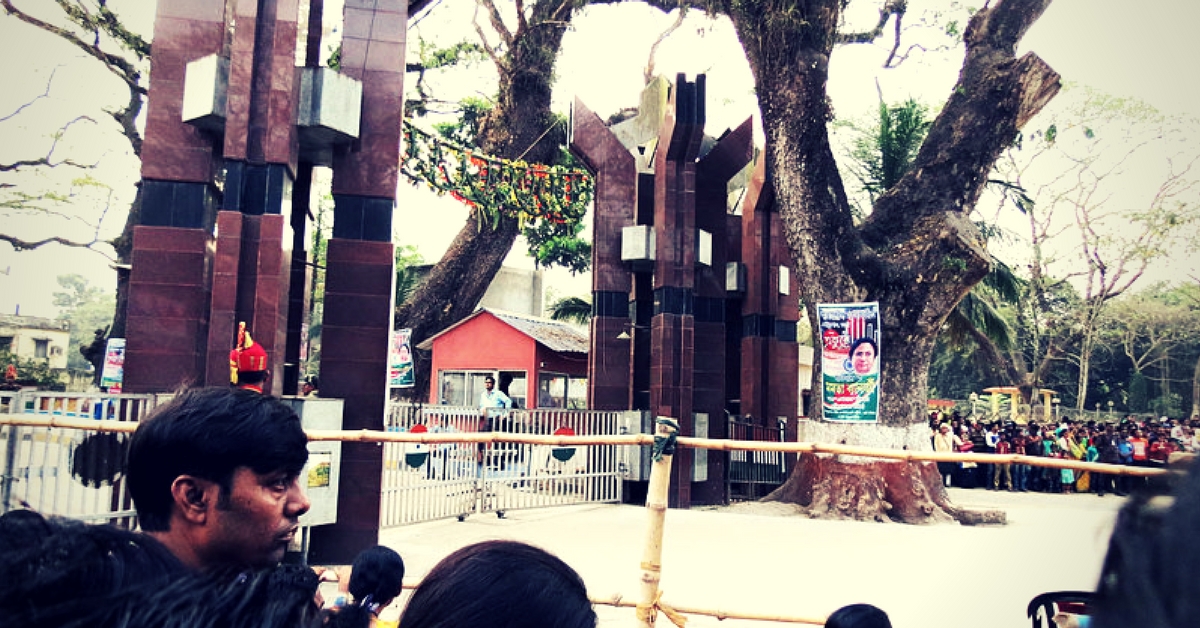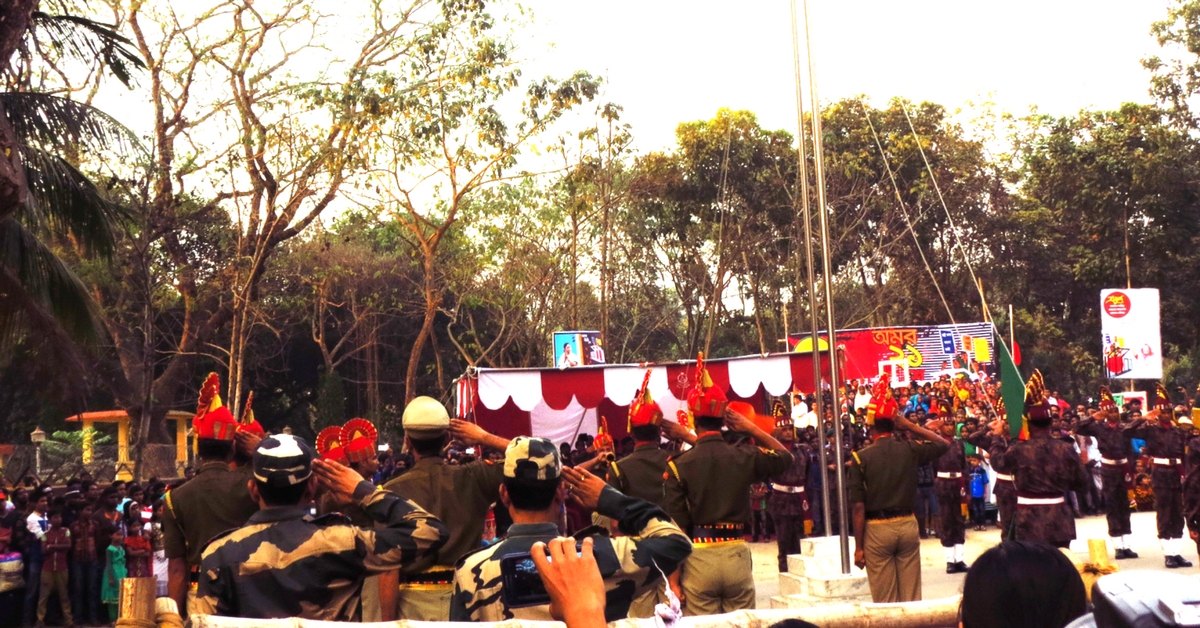In 1948, when Urdu was pronounced to be the only state language of Pakistan, the citizens of East Pakistan immediately protested this move. The accumulated frustration erupted in 1952, following which the government banned all political movements and demonstrations. On 21st February 1952, a group of students from University of Dhaka defied the ban and tried to organise a procession demanding that Bengali be made the state language besides Urdu. Unfortunately, upon reaching the campus they found out that the police had closed it off and in the ensuing clash, several student demonstrators were killed after being fired upon by the police.
This event was a catalyst for the assertion of Bengali national identity in the region, and became a forerunner to several Bengali nationalist movements. To this day, February 21st holds a high significance in Bangladesh, and is celebrated with great fanfare.

The day is also promoted as International Mother Language Day by the UN, to raise awareness regarding ethnic, linguistic and cultural diversity.
To mark this day and celebrate it, a one-of-a-kind blood donation camp was organised at the India-Bangladesh border of Petrapole-Benapole, on 21 February, 2018. Approximately 100 citizens, of both nations, came forward to donate blood to the people of the other country.
Jyotipriyo Mullick, the Food and Supplies Minister of West Bengal, the chief guest, was the force behind the event. He regretted not being able to donate blood, as he suffers from high blood sugar, and claimed that around 20,000 people, including writers and poets, from India and Bangladesh attended the event. Shirshendu Mukhopadhyay, a renowned writer from Bengal, was also present event and spoke of his experiences during the Bangladesh liberation war.
An optimistic and enthusiastic Ashraful Alam Milton, the Mayor of Benapole, which is a town on the Bangladesh side, said the blood donation was a happy occasion. He added that, ““We do not want to make any difference in the blood flowing through the veins of the Bengalis on either side of the border, and therefore, this blood exchange programme was organised.”
Blood donors from both countries walked away with mementos, depicting the significance of the day.
The language holds a dear place in the hearts of people on both sides of the border, and more than 25 crore people, from both India and Bangladesh, speak Bengali.
You may also like:- India, Bangladesh Joining Hands to Revive Railways Snapped After India-Pakistan Wars!
The blood donation drive to commemorate February 21st, is a unique but thoughtful tribute to Bengali—a language that many speak their first words in, on either side of the border.
Like this story? Or have something to share? Write to us: contact@thebetterindia.com, or connect with us on Facebook and Twitter.
NEW: Click here to get positive news on WhatsApp!
If you found our stories insightful, informative, or even just enjoyable, we invite you to consider making a voluntary payment to support the work we do at The Better India. Your contribution helps us continue producing quality content that educates, inspires, and drives positive change.
Choose one of the payment options below for your contribution-
By paying for the stories you value, you directly contribute to sustaining our efforts focused on making a difference in the world. Together, let's ensure that impactful stories continue to be told and shared, enriching lives and communities alike.
Thank you for your support. Here are some frequently asked questions you might find helpful to know why you are contributing?

